BMW iX1 vs Hyundai IONIQ 5 – erot ja hinnat vertailussa
Vertaa tehoa (313 hv vs 650 hv), tavaratilaa ja hintaa (50900 € vs 46800 € ) yhdellä silmäyksellä. Kumpi auto on sinulle parempi valinta, BMW iX1 vai Hyundai IONIQ 5?
Kustannukset ja kulutus
Hinta ja kulutus ovat tärkeimpiä ostopäätökseen vaikuttavia tekijöitä – ja juuri täällä erot usein korostuvat.
Hyundai IONIQ 5 on hinnassa tuskin havaittava edullisempi – sen lähtöhinta on 46800 € , kun taas BMW iX1 maksaa 50900 € . Ero on noin 4064 €.
Sähkönkulutuksessa etu on Hyundai IONIQ 5:lla: se kuluttaa 15.60 kWh /100 km ja on melkein huomaamaton energiatehokkaampi kuin BMW iX1, jonka kulutus on 15.80 kWh. Ero on noin 0.20 kWh.
Sähköisessä toimintamatkassa Hyundai IONIQ 5 suoriutuu vähän paremmin: se yltää jopa 570 km:een, noin 107 km enemmän kuin BMW iX1.
Moottori ja suorituskyky
Moottorin alta paljastuu, kumpi malli on urheilullisempi ja kiihtyy paremmin.
Moottoritehossa Hyundai IONIQ 5 on ratkaiseva etulyöntiasemassa – 650 hv verrattuna 313 hv:een. Ero on noin 337 hv hv.
Kiihdytyksessä 0–100 km/h Hyundai IONIQ 5 on ratkaiseva nopeampi – se saavuttaa 100 km/h ajassa 3.50 s, kun taas BMW iX1 tarvitsee 5.60 s. Ero on noin 2.10 s sekuntia.
Huippunopeudessa Hyundai IONIQ 5 on erottuva edellä – se yltää 260 km/h:een, kun taas BMW iX1 saavuttaa 180 km/h. Ero on noin 80 km/h.
Myös vääntömomentissa näkyy ero: Hyundai IONIQ 5 vetää huomattava voimakkaammin, 770 Nm verrattuna 494 Nm:een. Eroa on noin 276 Nm.
Tila ja käytännöllisyys
Tehon ohella arjessa ratkaisevat mukavuus ja käytännöllisyys. Tässä selviää, kumpi auto on monipuolisempi ja tilavampi.
Molemmissa autoissa on tilaa 5 henkilölle.
Omapainossa BMW iX1 on tuskin havaittava kevyempi – 1940 kg verrattuna 1955 kg:een. Painoero on noin 15 kg.
Tavaratilan koossa Hyundai IONIQ 5 tarjoaa vähäinen enemmän – 520 L verrattuna 490 L:een. Ero on noin 30 L.
Maksimikantavuudessa Hyundai IONIQ 5 pärjää vähäinen paremmin – jopa 1580 L, noin 85 L enemmän kuin BMW iX1.
Kantavuudessa Hyundai IONIQ 5 on melkein huomaamaton parempi – 530 kg verrattuna 495 kg:een. Ero on noin 35 kg.
Kuka voittaa datavertailun?
Hyundai IONIQ 5 voittaa vertailun selvästi objektiivisessa datavertailussa.
Tämä arvio kertoo vain, kumpi malli kerää enemmän pisteitä paperilla – ei kumpi näistä kahdesta autosta tuntuu sinulle oikealta.
Kustannukset ja kulutus
Näytä yksityiskohtainen analyysi
Moottori ja suorituskyky
Näytä yksityiskohtainen analyysi
Mitat ja kori
Näytä yksityiskohtainen analyysi
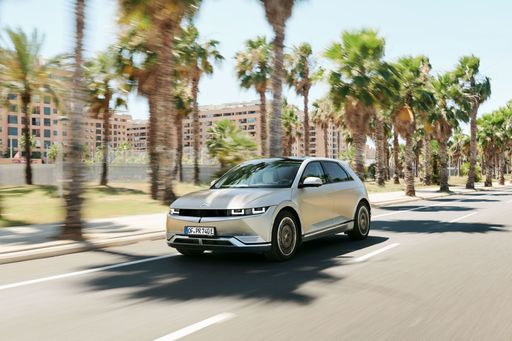
Hyundai IONIQ 5
BMW iX1
BMW iX1 on pirteä ja hillitty sähköinen katumaasturi, joka säilyttää BMW:n ajamisen ilon mutta on suunniteltu arjen käyttöön. Se tuntuu laadukkaalta, viihtyisältä ja fiksusti varustellulta valinnalta ostajalle, joka haluaa sähköautoa ilman turhaa pröystäilyä.
Tiedot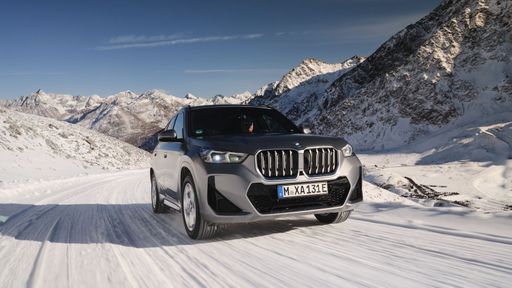
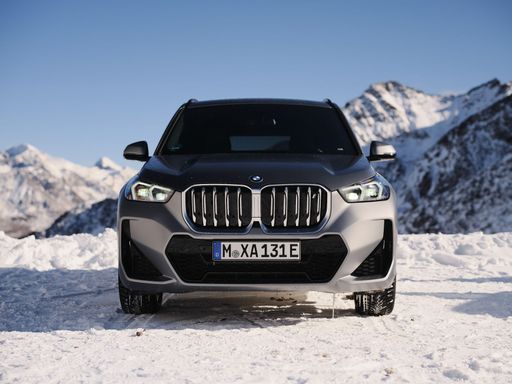
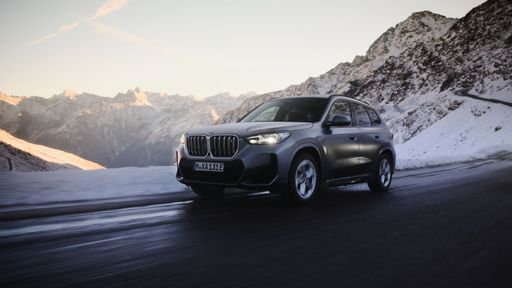
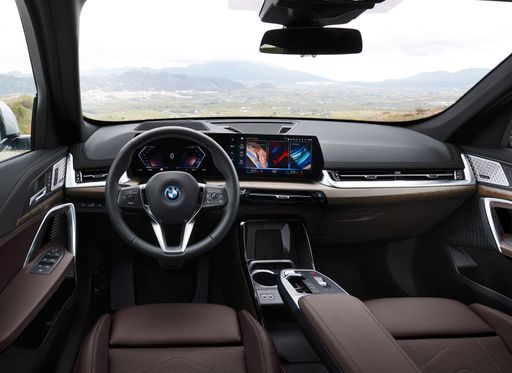
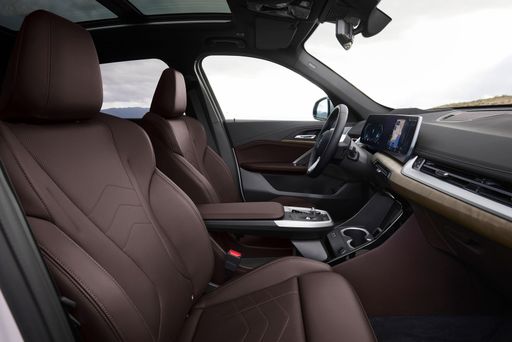
Hyundai IONIQ 5
Hyundai Ioniq 5 tuntuu tulevaisuudenautolta jo pysäköintiruudussa: sen kantikas, retrofuturistinen muotoilu yhdistyy avaraan sisätilaan, mikä tekee arjen ajamisesta tyylikästä ja käytännöllistä. Sähköautoilu Ioniqissa on vaivatonta ja jopa vähän hauskaa — lataaminen, ajettavuus ja tavaratilan joustavuus on mietitty niin että auto sopii sekä työmatkoihin että viikonlopun seikkailuihin.
Tiedot
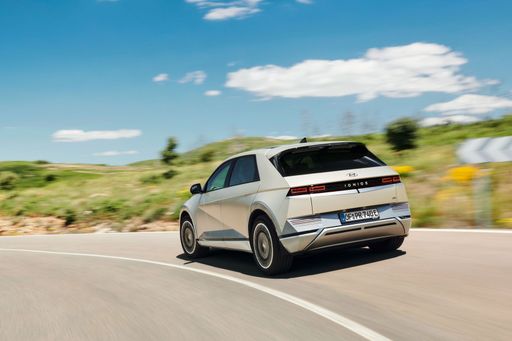
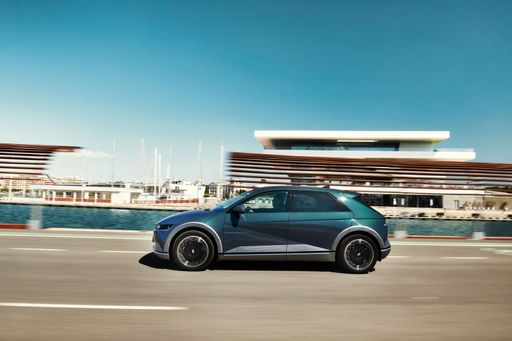
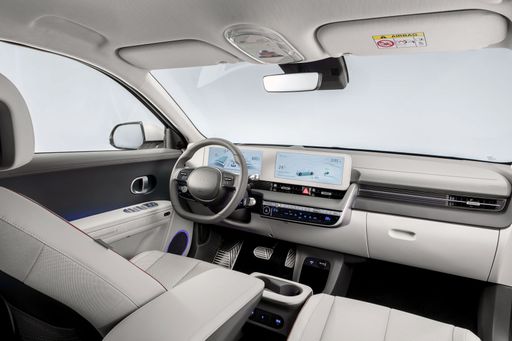
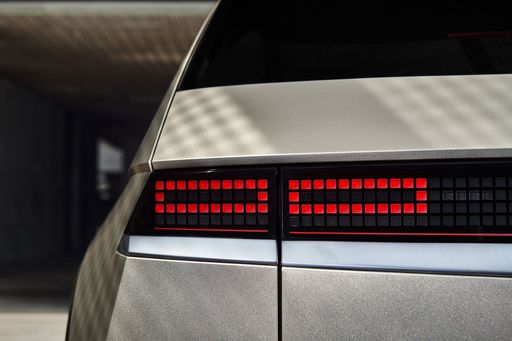
Kustannukset ja kulutus |
|
|---|---|
|
Hinta
50900 - 66400 €
|
Hinta
46800 - 78000 €
|
|
Kulutus L/100km
-
|
Kulutus L/100km
-
|
|
Kulutus kWh/100km
15.8 - 17.1 kWh
|
Kulutus kWh/100km
15.6 - 21.2 kWh
|
|
Sähköinen toimintasäde
436 - 463 km
|
Sähköinen toimintasäde
440 - 570 km
|
|
Akun kapasiteetti
64.80 kWh
|
Akun kapasiteetti
63 - 84 kWh
|
|
CO2
0 g/km
|
CO2
0 g/km
|
|
Polttoainesäiliön tilavuus
-
|
Polttoainesäiliön tilavuus
-
|
Mitat ja kori |
|
|---|---|
|
Kori
SUV
|
Kori
SUV
|
|
Istuimet
5
|
Istuimet
5
|
|
Ovet
5
|
Ovet
5
|
|
Omamassa
1940 - 2085 kg
|
Omamassa
1955 - 2275 kg
|
|
Tavaratila
490 L
|
Tavaratila
480 - 520 L
|
|
Pituus
4500 mm
|
Pituus
4655 - 4715 mm
|
|
Leveys
1845 mm
|
Leveys
1890 - 1940 mm
|
|
Korkeus
1616 mm
|
Korkeus
1585 - 1605 mm
|
|
Maksimi tavaratila
1495 L
|
Maksimi tavaratila
1540 - 1580 L
|
|
Kantavuus
495 kg
|
Kantavuus
385 - 530 kg
|
Moottori ja suorituskyky |
|
|---|---|
|
Moottorityyppi
Sähkö
|
Moottorityyppi
Sähkö
|
|
Vaihteisto
Automaatti
|
Vaihteisto
Automaatti
|
|
Vaihteiston lisätiedot
Alennusvaihteisto
|
Vaihteiston lisätiedot
Alennusvaihteisto
|
|
Vetotapa
Etuveto, Neliveto
|
Vetotapa
Takaveto, Neliveto
|
|
Teho hv
204 - 313 hv
|
Teho hv
170 - 650 hv
|
|
Kiihtyvyys 0-100 km/h
5.6 - 8.6 s
|
Kiihtyvyys 0-100 km/h
3.5 - 8.5 s
|
|
Huippunopeus
170 - 180 km/h
|
Huippunopeus
185 - 260 km/h
|
|
Vääntömomentti
250 - 494 Nm
|
Vääntömomentti
350 - 770 Nm
|
|
Sylinterien lukumäärä
-
|
Sylinterien lukumäärä
-
|
|
Teho kW
150 - 230 kW
|
Teho kW
125 - 478 kW
|
|
Iskutilavuus
-
|
Iskutilavuus
-
|
Yleistä |
|
|---|---|
|
Mallivuosi
2022 - 2023
|
Mallivuosi
2024 - 2025
|
|
CO2-tehokkuusluokka
A
|
CO2-tehokkuusluokka
A
|
|
Merkki
BMW
|
Merkki
Hyundai
|
Onko BMW iX1 saatavana eri vetotavoilla?
BMW iX1 on saatavilla Etuveto tai Neliveto-vetotavalla.
